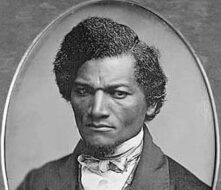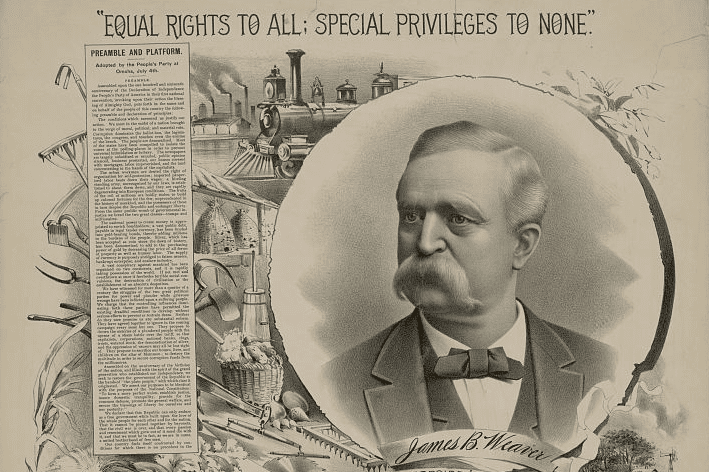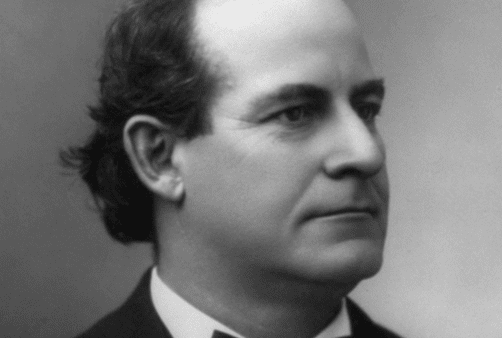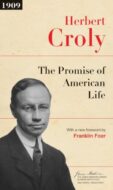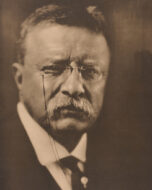
Introduction
Marion Butler (1863–1938) was an American farmer, politician, lawyer, and populist reformer. An eventual leader in the Populist Party, he served in the North Carolina Senate (1891–93), was elected president of the Farmers’ Alliance, and would go on to represent North Carolina in the U.S. Senate from 1895 to 1901. Butler is often remembered for his embrace of electoral fusionism. To achieve electoral success, at least in the immediate future, the upstart Populists would need to make inroads into the established parties. Thus, Butler routinely urged the Populists to compromise with either the Democrats or the Republicans, depending on the circumstances at hand, and support mutually agreeable candidates.
The 1896 Populist Party National Convention held in St. Louis, Missouri, in 1896 was largely dominated by fusionists who sought to nominate William Jennings Bryan as the Populist candidate for president. A few “mid-roaders,” however, insisted that fusionism would weaken the Populist Party. In a compromise, to balance the ticket, they secured the nomination of Populist stalwart Thomas E. Watson for vice president. In this speech before the convention, Butler made the case for supporting Bryan and establishing a coalition between Populists and Democrats revolving largely around Bryan’s stance on free silver (see The “Cross of Gold” Address). Sensing that compromise with the Democrats might dilute Populist Party cohesion, and that Democrats might want to co-opt a potentially threatening third party, Butler called on the party to stand firm on principle and warned against splitting over mere details or tactics. After losing the 1896 election, however, the Populist Party faded into obscurity, disappearing entirely by 1908.
Source: William Jennings Bryan, The First Battle: A Story of the Campaign of 1896 (Chicago: W. B. Conkey, 1896), 259–64, available online at the Hathi Trust Digital Library: https://babel.hathitrust.org/cgi/pt?id=uc2.ark:/13960/t93778b3h&view=1up&seq=11.
Fellow Citizens:
All history teaches that there come great crises in the affairs of men, and all history teaches that humanity is blest and raised to a high level or temporarily cursed, according as the men upon whose shoulders rest the responsibility are able to meet the crisis with wisdom and patriotism and to use it for the betterment of humanity. Two political parties have held national conventions this year. Both have had their say, made their promises, and put forward their leaders.
Another political party, young, but a growing giant in strength, has assembled to speak to the American people at this important and critical hour.
We are here because there is need for us to be here. The two parties that have already spoken have between them had charge of the machinery of a great representative government, in which kind of government there are the greatest possibilities for good and for evil—the kind of government where the prosperity of the people or their misery can be affected to the greatest degree. The two parties have between them had charge of your government for over twenty-five years, and during that time a great and prosperous people, a people laboring to carry out the injunction to make two blades of grass grow where one grew before, have performed their duty in the eyes of God and man, and have made this country blossom like a rose, as far as creating wealth was concerned, yet during this time of unexampled creation of wealth, of unexampled industry and economy on the part of the people, these two parties have succeeded in bringing this great nation to the verge of ruin.[1]
Did they know better, or did they not know better? Were they honestly mistaken, or did they do it on purpose? In either event their leadership is a discredit to the existence of the party and the necessity of this organization is proven. Every candidate put before the American people since the war by both of these parties has been a man whose nomination and election has carried joy to the hearts of aggregated capital and combined greed. They have selected the men who have stood in touch with, and been the allied agents of, the powers that have brought this country to the verge of bankruptcy, and these powers, which have destroyed every republic in the past, will destroy this one unless checked. My friends, these two great parties, under false leadership, have during this period succeeded in keeping from the people the greatest issue in American politics; they have managed to array the great masses of the American voters with frenzied zeal on two sides of great national campaigns, when the issue was a sham put up for the purpose of dividing the people. It made no difference which side won, the people lost. . . .
A few weeks ago the great Republican Party met in this city. The politicians again wanted to straddle the great issue that was before the people but the People’s Party had exposed the straddling treachery. The logic of events caused them to express themselves clearly upon the question of the day, and consequently they went over, bag and baggage, to the great money kings of Wall Street and of Europe.
A few weeks after that there came another evidence of this great movement. The great Democratic Party met in Chicago and was forced there to take a position, for they could not evade the issue longer; they were frightened; they were so alarmed, and some of them, no doubt, so conscience-stricken, that they formally decided to deliberately commit petty and grand larceny by stealing the People’s Party platform almost entire. . . .
As long as the American people need an organization that is true, and one that will stand by them under all circumstances and give them the rights to which they are entitled, this party will continue to exist. If the People’s Party were to go out of existence tomorrow, the next Democratic National Convention would repudiate the platform it recently adopted at Chicago, and Mr. Bryan would stand no more chance four years hence of being nominated by that party than Thomas Jefferson would if he were alive.
Now, my friends, we have done a good deal. No young party has ever accomplished so much in the same length of time as we have done. We have endured the bitterness of denunciation and the abuse and malignity of party feeling. Right here comes upon us the greatest responsibility that has ever rested upon any party. We have raised an issue so universal, so great, so important, that we have split both of the old parties in two. Now we have either to save that issue or to renounce what we have gained and lay it down in defeat. No greater responsibility ever rested upon any convention.
Fellow citizens, shall it ever be said—remember we are making history, and prosperity or misery—shall it ever be said in the future that this great band of patriots who have had the nerve and the courage to leave the parties of a lifetime—this great band of patriots who have broken every tie that bound us and our fathers and our grandfathers in political organization—shall it ever be said that, after we have forced this issue to the front, we at this trying and critical hour shall ourselves be controlled more by party prejudice than by patriotism?
The only way to build up this party is by appealing to the best element of the old parties and appealing to their patriotism by telling them that this issue is greater than party. That is the only way we have ever taken a single man out of the old parties who was worth having. And it is the only way we shall ever take any man out of them in the future who is worth having. In this solemn hour let us drop the bitter feelings that may have been engendered since we came here. Let us stop believing that in one small head all wisdom and patriotism are contained. . . . I have seen enough faith in the faces before me, and enough faith in the God above me, to believe that this convention will not turn itself into a Democratic annex. I have too much faith in its patriotism and in its sense to believe that it will turn itself into a Republican annex. There is your danger. There stands one danger and here stands another, and one is as big as the other. It has been a part of my experience that, whenever you see some good men going to one extreme and other good men going to the other extreme, the path of truth lies between them. . . .
We have two extremes here, but it won’t do to ruin this convention. We have to reason. What must we do? It is proper and right; it is fitting for a great party that had its birth on the broad cornfields and cottonfields of the South and the broad wheatfields of the West to have the wisdom and the patriotism to winnow the chaff from the wheat. What should we do? (A voice, “Nominate Bryan.”)
My friends, we are told that whom the gods would destroy they first make mad. I want to counsel our good and enthusiastic friends that every time they shout out here and interrupt, they are hurting our cause. This convention is not going to be ruled by any wild sentiment by either side, I believe. This convention has not been crushed by the other parties and it will not be stampeded by the moon. What is our duty? It is to endorse and approve what is right and condemn what is wrong. Any other course is not true populism. . . .
My friends, there is not a man in the People’s Party that loves it more and has more cause to be revenged against the old parties than I. There is danger of those patriotic enough to leave the old parties becoming prejudiced to such an extent as to be controlled by their feelings instead of their hearts and reasons. I believe that this convention is going to do what is wisest. I believe it is going to stand together. It is not going to split. How can it? We split both of the old parties and we split them on a principle. We cannot split, because we all stand for the same principles. And of course a party that has raised up a great principle and split the two old parties is not going to be foolish enough to allow itself to split on method and detail. We will stand together. We will go home from here a united band of brothers. We will strip our coats for the fray and see the millions of organized capital and gold monopoly stricken down in this country. We will do more than that. We will show you that this young giant, the People’s Party, comes out of that campaign stronger than it went into it. Mark you, the old parties will make mistakes in the future as they have in the past. This party is going to stand ready to hit them and take in their honest men at every mistake they make. We are willing to approve everything right they do, and we will condemn them when they blunder, or when they betray us as they have in the past. Remember that you are People’s Party men; that you have accomplished more in four years than the old parties have accomplished in a hundred. Remember that if we do our duty at this hour, the time is not far distant when we will be the majority party in America.
- 1. In 1896 the United States was in the midst of a recession.
The Populist Party Platform
July 24, 1896
Conversation-based seminars for collegial PD, one-day and multi-day seminars, graduate credit seminars (MA degree), online and in-person.


















